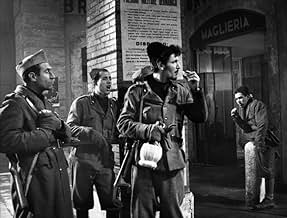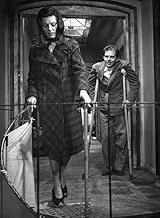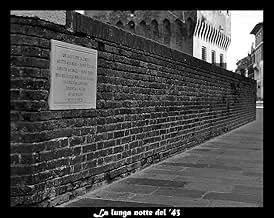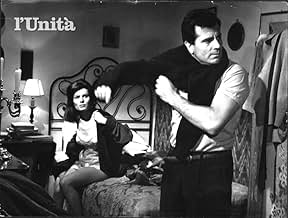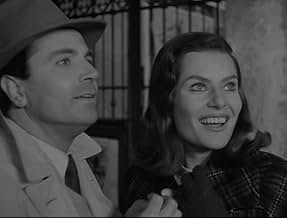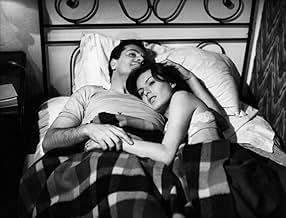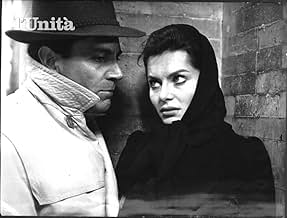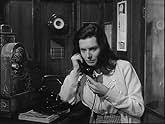Aggiungi una trama nella tua linguaIn the midst of World War II, the story of the affair of a young woman married to a man in a wheelchair, with a deserter from the Italian army, intertwines with that of the power grab of a f... Leggi tuttoIn the midst of World War II, the story of the affair of a young woman married to a man in a wheelchair, with a deserter from the Italian army, intertwines with that of the power grab of a fanatical local fascist leader who gets the hold with a massacre of Pacific opposition, amo... Leggi tuttoIn the midst of World War II, the story of the affair of a young woman married to a man in a wheelchair, with a deserter from the Italian army, intertwines with that of the power grab of a fanatical local fascist leader who gets the hold with a massacre of Pacific opposition, among them the young deserter's father. Oppressive fog covers both dramas as a reminder of ho... Leggi tutto
- Regia
- Sceneggiatura
- Star
- Premi
- 4 vittorie e 2 candidature totali
- Ines, sorella di Franco
- (as Raffaella Pelloni)
Recensioni in evidenza
From its first frames, the film immerses the viewer in a provincial universe where nothing seems to happen, and yet everything is compromised. Ferrara is not just a setting - it is a character. Its empty streets, cloaked in mist or baked in an indifferent sun, seem suspended in a time where history has already passed but morality has yet to return. Unlike the hot-blooded, rebellious Naples of The Four Days of Naples (Le quattro giornate di Napoli, 1962) -a city bursting into collective revolt- Ferrara here is numb, frozen, immobile. The film thrives on this contrast. In Naples, injustice is met with a visceral, almost elemental fury; in Ferrara, it is met with drawn curtains and turned faces. It is the difference between an open wound and one that festers silently beneath the skin.
Stylistically, the film embraces this inertia with formal discipline. The black-and-white photography is clinical, stripping away any romanticism or nostalgia. The compositions are cold and geometric, the editing slow but purposeful. What matters is what remains unsaid, unacted, unavenged. The events themselves -a betrayal, a murder, a departure- are not dramatized; they are simply absorbed by the city, as if the stone walls and cobbled streets had long ago decided that history is best endured in silence.
The protagonist is the perfect vessel for this moral stillness. Crippled physically and, more deeply, emotionally, he drifts through the film like a figure already half removed from life. He watches, he listens, but he acts too late, or not at all. His injury is not only in his body but in his spirit - a spirit that no longer resists, only survives. In a different film, he might be a tragic hero. Here, he is a witness suspended between guilt and impotence, paralyzed by a past he cannot undo and a present he cannot confront. His silence is not noble; it is dense with resignation.
At the heart of the film's corrosive ambiguity lies the female lead - a character as disturbing in her moral shading as any in this genre. She is not a villain, but she is certainly not innocent. Her motivations are opaque, and the film refuses to clarify them. She appears to care for her husband, but the care seems ritualistic, a role performed more than felt. Her renewed attraction to a former lover emerges not as passion, but as escape - from stagnation, from her own decay. Yet this return to youth is no redemption: she seeks comfort, validation, perhaps even the illusion of love, but in doing so betrays her husband with an ease that feels rehearsed.
The lover himself is compelled to flee the city after the fascists murder his father, placing him in real danger of forced conscription. His departure is therefore a necessity born of survival rather than mere selfishness. However, the film does not romanticize his exit; it is tinged with coldness and abandonment, highlighting the emotional distance between the characters. His flight, though understandable, leaves the woman isolated, deepening the film's portrayal of fractured relationships and pervasive moral ambiguity.
In the end, all the characters are marked. None are wholly guilty, and none are clean. The film is relentless in this - it doesn't allow a single figure to stand outside the fog. The doctor, the townspeople, the police, even the silent onlookers: all share in a system of cowardice, convenience, and muted cruelty.
It is in this distribution of guilt, this refusal to allow for any redemptive clarity, that the film reveals its deepest layer. Evil here is not dramatic - it is procedural, casual, and sometimes wears the face of care. The film seems to whisper, never quite aloud, that neutrality is a costume, and that even the most passive figures are complicit in the structures that allow violence to unfold. There is a subtle didacticism at work, but it is buried, hidden beneath layers of moral fog. The warning is there, if one chooses to hear it: no one is innocent simply by being still.
This is cinema that strips away the comforts of narrative and the catharsis of resistance. It leaves the viewer with a feeling not of closure, but of unease - the sensation that this world, so carefully built, so familiar in its habits, could just as easily return. That, perhaps, it never really left.
Lo sapevi?
- QuizAlice Clements's debut.
- BlooperA poster of Vittorio De Sica's I bambini ci guardano (1943) can be seen. The movie was released in Italy only in 1944.
- ConnessioniFeatures Violette nei capelli (1942)
I più visti
Dettagli
- Tempo di esecuzione1 ora 45 minuti
- Colore
- Mix di suoni
- Proporzioni
- 1.37 : 1
Contribuisci a questa pagina


